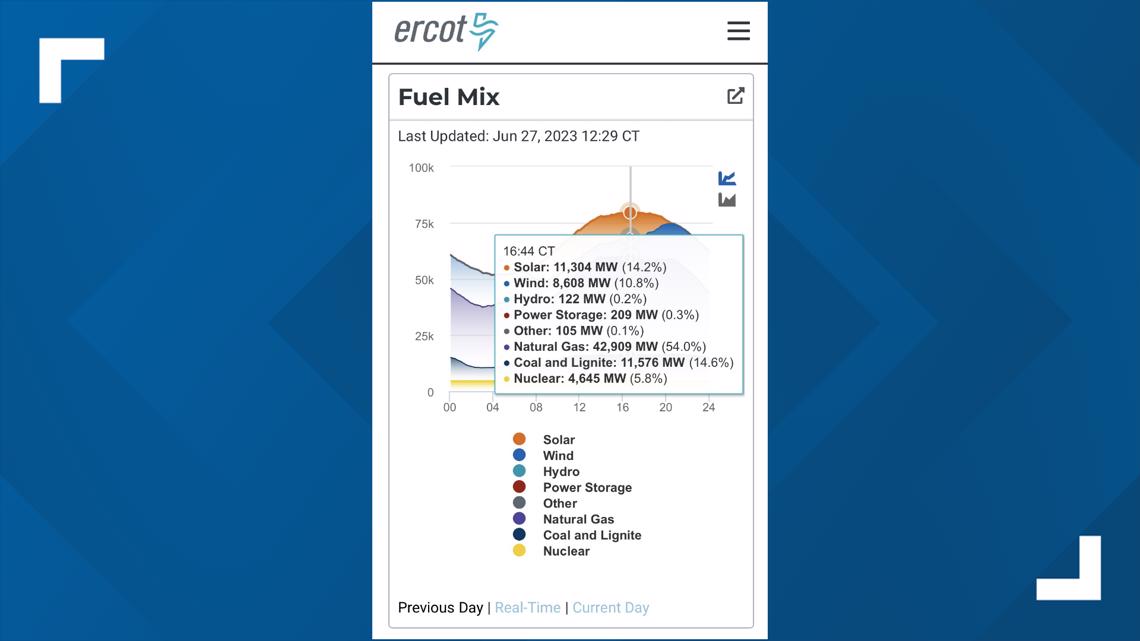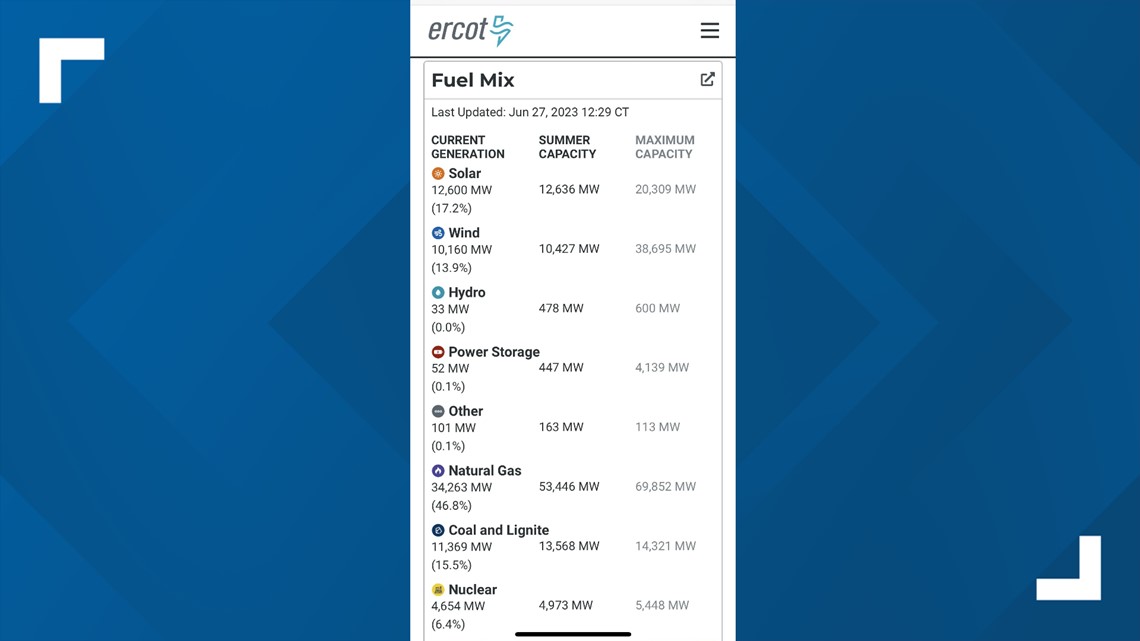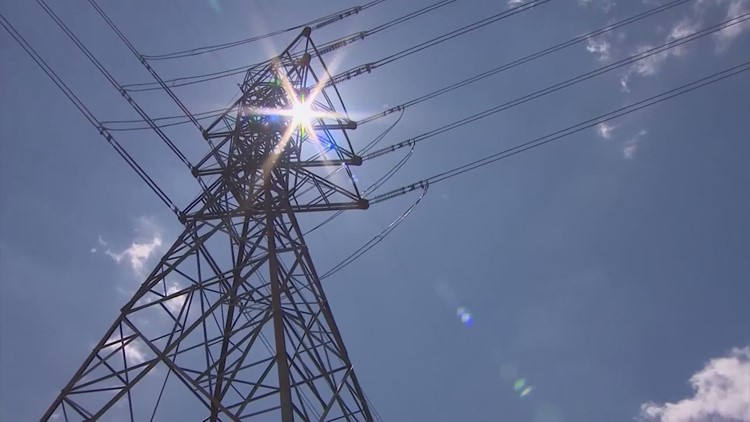HOUSTON — Batteries are a growing resource on the grid managed by the Electric Reliability Council of Texas, ERCOT.
Without getting technical, the best technology available now can provide up to four hours of discharge. In this way, batteries are dispatchable, that is, they can be turned on or off, in a manner similar to quick start natural gas power plants or coal power plants that can be started up over a period of hours. (The four nuclear power plants in ERCOT run all of the time apart from refueling and necessary maintenance.)
While the batteries themselves are expensive to build, they require little in the way of labor and ongoing operations expense.
The battery owners buy electricity when it is cheap -- usually at night in ERCOT -- and sell it when the price of electricity is high, lately during the hot summer afternoons.
The owners of the batteries buy any electricity. It only depends on the price. For example, last Tuesday, June 20, battery owners had the opportunity to recharge overnight at prices that were less than $30/megawatt hour (MWh) and then sell it back to ERCOT that afternoon at almost $5,000/MWh. Of course, it would still make money for a battery owner to recharge at a price of $100/MWh and sell it back at $150/MWh.
As the charts below show, the category Power Storage, into which batteries are classified, is a relatively small contributor to ERCOT on a daily basis at this time. Batteries will be become increasingly important as the number of coal and natural power plants in ERCOT continues to decline. Batteries will be the complement to solar power because solar-generated electricity ramps down rapidly at the end of the day before the evening winds provide, on average, increased electricity from the wind turbines in West Texas.







